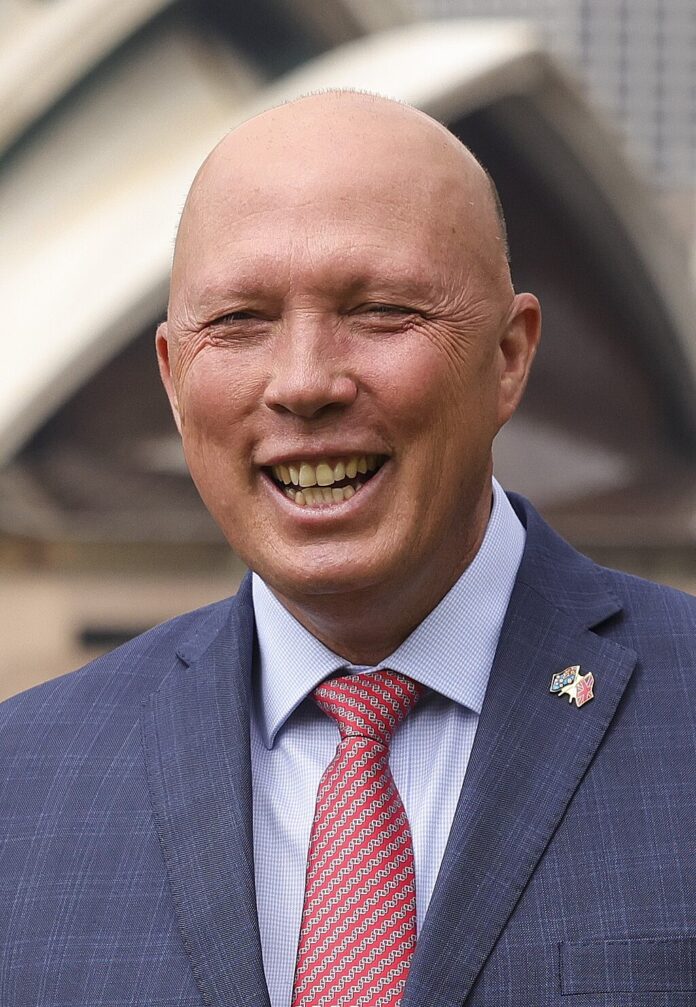Opposition leader Peter Dutton’s proposal to ban all refugees from Gaza has faced backlash from MPs who argue it undermines Australia’s refugee policy and inflames tensions
On Friday, Opposition Leader Peter Dutton stirred controversy by linking Australia’s housing crisis to the influx of refugees from Gaza. Dutton asserted that the Albanese government’s handling of refugee admissions from Gaza, a region controlled by Hamas, was contributing to the country’s housing and social pressures.
Dutton’s remarks came amidst his ongoing critique of immigration policy. He previously argued that high migration rates, exacerbated by pandemic-era policies, were straining Australia’s infrastructure, including housing, schools, and roads. On Friday, he intensified his rhetoric, accusing the government of inadequately vetting refugees from Gaza and suggesting that the Albanese administration was deliberately allowing individuals with potential ties to Hamas into the country.
Embed from Getty Images“Australia is a generous nation, but we must manage our migration program effectively,” Dutton told Nine Network’s Sarah Abo. He criticized the government for admitting 1,300 individuals from Gaza since October 7, despite ongoing conflict in the region and its control by Hamas, which is designated as a terrorist organization in Australia.
Dutton’s position quickly drew sharp responses from various MPs. Independent MP Dai Le, who fled Vietnam as a child and was accepted as a refugee by Australia, expressed her dismay. Le described the debate as “triggering,” highlighting the parallels between her own experience and the current situation facing Gaza refugees.
Labor MP Josh Burns also weighed in, recalling his grandmother’s experience as one of 9,000 European Jews allowed into Australia in 1939, despite xenophobic sentiments of the time. Burns argued that blanket categorizations of refugees as potential threats were harmful and counterproductive.
Independent MP Zali Steggall criticized Dutton’s approach, asserting that it contradicted advice from Australia’s security agencies and contributed to societal polarization. Steggall’s comments, however, were met with heckling from the opposition, which disrupted her speech and further fueled tensions.
Dutton’s call for a blanket ban on refugees from Gaza, based on the assertion that a significant portion of the population supports Hamas, has been criticized for its lack of nuance. He argued that the Prime Minister’s motivation was politically driven, suggesting that admitting refugees from a conflict zone controlled by a terrorist organization could yield political benefits.
The debate intensified as Dutton continued to assert that the Albanese government’s immigration policies were flawed, ignoring the complexities of the situation. The opposition leader’s stance has sparked a broader discussion on Australia’s approach to refugee admissions, security vetting, and the balance between humanitarian commitments and national security.
Despite the heated exchanges, it remains challenging to reconcile the need for thorough security measures with Australia’s long-standing tradition of providing refuge to those in need. The current debate underscores the difficulties in managing immigration policies amidst global conflicts and domestic pressures.
Analysis:
Political: Peter Dutton’s push for a ban on Gaza refugees highlights the increasing politicization of immigration issues in Australia. By linking refugees to housing and security concerns, Dutton has amplified a narrative that aligns with broader anti-immigration sentiments. This stance is likely to influence political discourse and impact public opinion, particularly in the lead-up to future elections. The controversy also reflects the challenges faced by the Albanese government in addressing immigration and housing issues while navigating political opposition.
Social: Dutton’s rhetoric has significant social implications. The debate around Gaza refugees taps into broader discussions about Australia’s values and identity. By framing refugees as potential threats, Dutton risks deepening divisions within Australian society. The emotional responses from MPs like Dai Le and Josh Burns highlight the personal and historical dimensions of refugee policy, underscoring the tension between humanitarian ideals and national security concerns.
Racial: While the immediate focus of the debate is on Gaza refugees, the broader implications of Dutton’s statements touch on racial and ethnic issues. By associating refugees from Gaza with terrorism, Dutton’s position could perpetuate stereotypes and exacerbate racial tensions. The conflation of nationality and extremism in political discourse can contribute to negative perceptions of specific ethnic and religious groups.
Gender: The debate over Gaza refugees does not directly address gender issues, but the broader implications of immigration policy can intersect with gender concerns. For instance, increased scrutiny and restrictive policies might disproportionately affect women and children fleeing conflict zones. The focus on security and potential threats could overshadow the specific vulnerabilities faced by female refugees.
Economic: Dutton’s argument linking refugee admissions to the housing crisis reflects ongoing economic anxieties. The perception that high migration rates contribute to housing shortages and strain on public services resonates with broader economic concerns. However, this perspective oversimplifies the complexities of housing and infrastructure issues, which are influenced by a range of factors beyond immigration alone. The debate underscores the need for comprehensive solutions that address both economic and social dimensions of immigration.
